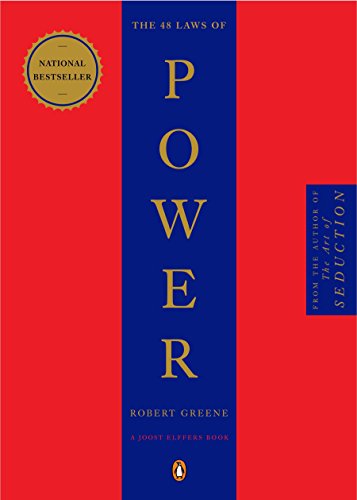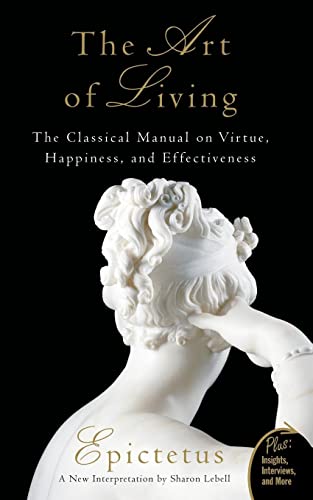The 48 Laws Of Power
For this book summary offered by Book Rate, you can also access the book reviews from this area.
Click here to comment or see reviews for this book.
Book Detail
The 48 Laws Of Power
One Sentence-Summary: The 48 Laws Of Power draws on many of history’s most famous
power quarrels to show you what power looks like, how you can get it, what to do to defend
yourself against the power of others and, most importantly, how to use it well and keep it.
Favorite quote from the author: “Powerfull people impress and intimidate by saying less.
The more you say, the more likely you are to say something foolish.”
Even though Mastery is a great book, it’s not the one that put Robert Greene on the map. The
48 Laws Of Power was. Published in 1998 after taking a big risk, due to quitting his former
job, which he hated, the book became a bestseller and has now sold over a million copies.
It’s especially popular with rappers and hip-hop artists, but many celebrities quote from the
book and mention the laws’ influence on their life. 50 Cent is just one of them, with whom
Greene ended up collaborating on another book. Most of the 48 laws draw on a specific
situation from history, and even though some of them seem to contradict one another, there’s
a precious lesson to be learned from every single one.
Here are 3 lessons about power to help you understand it better:
1. Always make superiors look smarter than you.
2. Confuse competitors by acting unpredictably.
3. Don’t force others to do what you want, seduce them instead.
Lesson 1: Always make superiors look smarter than you.
Here’s one surefire way how to not get promoted: When your boss comes across a problem
she can’t solve on her computer, go to her, and, as you fix it, say: “Seeeeee? That’s how you
do it. No problem, I’m happy to help!”
The one thing people in a position of power don’t want is to look powerless . But when you
flaunt your skills right in front of them, that’s exactly what happens. The French minister of
finance under King Louis XIV, Nicolas Fouquet, paid for that lesson with a life in prison.
When he threw an excessive party at his chateau in favor of the king, the king accused him of
stealing, for no one man could legally be that wealthy, and threw him into prison.
So instead of showing off how good you are, make your boss look like she’s the smartest
person in the room, even if you know she isn’t. Give away credit and you’ll be given
responsibility in return.
For example, when Galileo Galilei discovered the four moons of Jupiter, he could’ve taken all
that credit. Instead, he named them after the Grand Duke, Cosimo II de’ Medici, and his
brothers. As a result Cosimo appointed him as his official philosopher and mathematician,
securing Galileo’s funding for his research for years to come.
Lesson 2: Make errors on purpose to confuse your competition.
Sometimes the competition seems to always be one step ahead of you. That’s likely because
they’ve invested time and energy into researching you and finding out your behavior patterns.
When that happens, your best move is to act unpredictably. Do the opposite of what you think
people expect, make a mistake on purpose, or just disappear for a while.
Erroneous behavior throws people off their analysis game, and while they’re busy trying
to figure out your new pattern and explaining your behavior, you have the chance to strike
back.
This is one of the first lessons good poker players learn. If you only play hands when you’ve
hit at least a pair or above, the other players will quickly be on to you and fold every time you
bet. But throw in a bluff or two, which you commit to and ride out, even if you end up losing
those hands, and your opponents can’t be so sure anymore.
Bobby Fischer used this exact strategy to confuse Boris Spassky in their match for the 1972
world championship title in chess. He made a beginner’s mistake in their first game, didn’t
even show up for the second one (and lose by forfeit, and returned only minutes before the
third game started. Then he started making crazy demands, like moving cameras, switching
rooms and exchanging chairs. Finally, he played openings completely atypical to his usual
chess style, and eventually beat Spassky to become world champion.
Lesson 3: Seduce others into voluntarily doing what you want them to, instead of forcing
them.
Even when you’re in a position of power already, people won’t always do what you want
them to. When that’s the case, you should never resort to trying to force people to obey.
Instead, make it impossible for them not to do what you’d like them to by seducing them.
Chuko Liang, head military strategist of ancient China used this to break his enemy, King
Menghuo. Rather than destroying their entire army, when they attacked China, he captured
them all, and then …served King Menghuo great wine and food. His soldiers saw this
generosity, and after Liang was sure he had baffled them, he released them but kept King
Menghuo hostage. Only after threatening that he’d have to bow to the Chinese king if he was
captured again, did he release the enemy. Over the years, Liang did capture Menghuo time
and time again, each time making the same threat, yet always releasing his prisoner. After the
seventh time, Menghuo surrendered, bowed to the king and gave up on his own accord.
Raw force only breeds resentment, so use seduction instead.
Last Evaluated !













